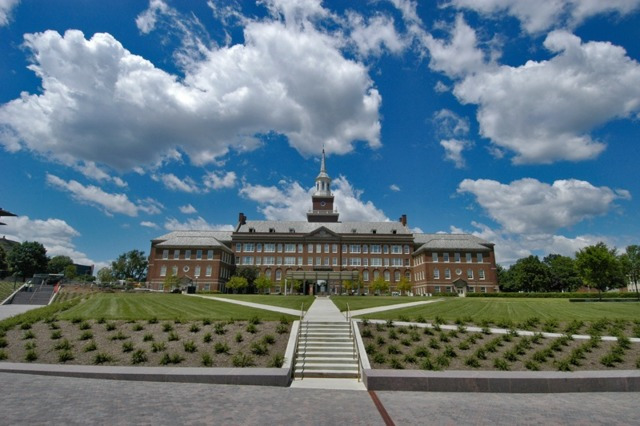Following recommendations from a task force and University of Cincinnati President Neville Pinto, the UC Board of Trustees voted unanimously today to remove the name of a controversial slave owner from UC's College of Arts and Sciences.
Charles McMicken deeded land to the City of Cincinnati that was used to found UC. The university's McMicken College of Arts and Sciences bears his name — or at least, it did. Now it will be simply the College of Arts and Sciences. Other uses of McMicken's name, including the McMicken Hall building, will remain, however.
McMicken owned slaves and stipulated that the college created on his land should serve white students only.
In December 2018, University of Cincinnati President Neville Pinto announced he was forming the working group to consider the question of whether the university should continue the use of the name.
A committee of University of Cincinnati faculty, student government representatives and administrators issued a report in November recommending that the university discontinue use of McMicken's name in association with the academic division that currently wears his moniker.
"The university’s ennobling of McMicken by associating his surname with A&S symbolizes the exclusion and unwelcome that African-Americans experience in their relationships with UC and the university’s failure to commit fully to the principles of diversity and inclusion that it professes," the working group wrote in its report. "In the 1970s, African-American students experiencing racism on campus, whether flagrant or subtle, pointed to McMicken and reminded each other that: 'He didn’t want you here.' Their mentors — African-American fellow students, faculty members, administrators and staff — made it a point to pass on to them knowledge of McMicken’s slaveholding and segregationist legacy. This McMicken legacy was seen as alive, manifested in an unwillingness or inability on UC’s part to be supportive, inclusive and welcoming without regard to race."
The University of Cincinnati, today one of the city's largest employers and one of Ohio's most prominent state universities, didn't come into existence until five years after the Civil War ended and enslaved African Americans were emancipated. But its history goes back earlier than its official 1870 birthday — and so does its connection with America's legacy of slavery.
McMicken was a wealthy landowner in Cincinnati who also owned several plantations in Louisiana using slave labor. He even fathered children with his slaves, which was the subject of this Cincinnati Magazine story by former UC spokesman Greg Hand. McMicken's will freed his slaves upon his death but also bequeathed wealth to his nieces and nephews while neglecting to leave his children anything.
Upon his death from pneumonia in 1858, McMicken bequeathed land worth roughly $1 million to the City of Cincinnati so that a college "for white boys and girls" could be established.
That land, and other provisions of his will, were held up in court for several years. The Ohio State Legislature granted Cincinnati the right to establish its municipal university 12 years later, after emancipation, and the university never expressly forbade black students as McMicken seemed to suggest. It would take until 1886, however, for UC to see its first black graduate, a man named Henry Malachi Griffin.
As it grew, UC absorbed other schools, including the Medical College of Ohio, which was founded in 1819.
That's the date UC has been celebrating this year as its bicentennial. The 200-year milestone triggered the effort to research the school's connection with slavery.
"We must be the type of institution that is brave enough to revise itself — even, perhaps especially, as it remembers," Pinto wrote in a Dec. 12 statement supporting renaming the College of Arts and Sciences.
Even as the former McMicken College is renamed, racial justice advocates have suggested there is still work to be done to bridge considerable racial disparities.
While Cincinnati is roughly 43 percent black, African Americans comprise just 8.4 percent of UC's student enrollment, according to statistics provided by the university. Overall, UC's minority enrollment is 21 percent.






